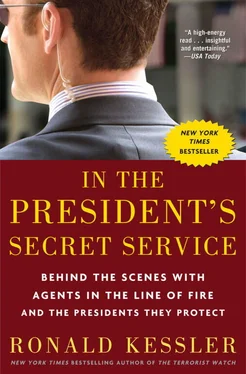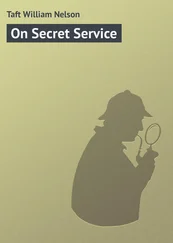For that reason, U.S. Attorneys dread working with Secret Service agents.
The larger problem is that the Secret Service blindly takes on greater jurisdiction on the investigative side and more duties on the protection side without obtaining a commensurate increase in budget and agents. That is a reflection on management, not the agents, who are generally sharp and dedicated. More than officers or agents of any other law enforcement agency, FBI agents who have worked with them admire Secret Service agents.
Aside from their normal duties, agents have saved lives by giving cardiopulmonary resuscitation and have prevented murders and apprehended hit-and-run drivers, as Agent Patrick Sullivan did in New York one afternoon. Driving alone on the FDR Drive, he saw a car in front of him racing northbound at high speed. A man was changing his tire at the side of the road underneath the Williamsburg Bridge. The speeding car hit the parked vehicle, sending the driver into the air.
Sullivan radioed the New York field office asking for police assistance and an ambulance. He turned on his flashing red light and siren and chased the car uptown, where he finally headed him off on First Avenue, in front of the United Nations. Drawing his gun and displaying his badge, Sullivan ordered the man from the car and held him until police arrived. The victim survived.
In other cases, agents prevent harm to protectees in unusual circumstances. When young Amy Carter attended Ethel Kennedy’s annual Hickory Hill Pet Show at Ethel’s estate in McLean, Virginia, in May 1978, a three-ton elephant named Suzie charged her. As the crowd scattered in panic, an agent scooped up Amy and carried her to safety.
Aside from agents who have lost their lives in the line of duty, many have contracted incurable tropical diseases like dengue fever and other maladies while protecting U.S. officials overseas. Agents will literally give protectees the shirts off their backs—as agent Harold Ewing did when the president’s limo hit a pothole on the way to Annapolis and Bill Clinton spilled coffee all over his own shirt.
“The Secret Service attracts a lot of people who have been brought up with a certain code of ethics,” says former agent Norm Jarvis, who trained new agents and later was a special agent in charge. “Those ethics mean that a person who would ordinarily be interested in preserving his own life is willing to sacrifice his life. The training that the agent goes through doesn’t necessarily say, ‘When you hear this, this is what you’ve got to do. You hear a gunshot, and step one is this. Step two is you take a bullet for the president.’ It’s basically, you go to an instinct kind of mode.”
Obviously, Jarvis says, “When you sign up for the job, you have to come to the conclusion that you would step in front of the president to protect him from an assassin. But,” he adds, “I don’t even think it’s worth contemplating. You would just do it.”
“The greatness of the Secret Service is its people,” says former agent Pete Dowling. “Somehow we get high-quality people who are superdedicated to a mission.”
No one knows how many assassination attempts have been prevented because a gunman decided an attempt was too risky or because the Secret Service confiscated a weapon. Beyond the well-publicized attempts, presidents and other protectees have been targets of dozens of lesser-known plots. For example, when Edward M. Kennedy was running for president in 1979, agents subdued a knife-wielding woman who entered the reception room in his U.S. Senate office.
“The Secret Service’s mission of preventing a criminal act is far harder than investigating one after it takes place,” FBI director Robert S. Mueller III tells me.
Yet effective as Secret Service agents have been, their capability is diminished by a management that cuts corners when the need for tight security has never been greater, and refuses to recognize that the agency cannot properly handle all the duties it unflinchingly assumes. Just as FBI Director J. Edgar Hoover managed to cover up the bureau’s shortcomings through good public relations, the Secret Service has done a brilliant job of projecting an image of infallibility that is not deserved.
Even Hoover’s obsessive emphasis on dressing sharply and wearing white shirts is mirrored by Secret Service management. In one of his first communications with agents after being named deputy director in July 2008, Keith Prewitt said that agents should dress like Secret Service agents when traveling. Yet agents point out that one way to catch a terrorist planning to take down an airplane is to dress in the most casual clothes so a terrorist does not suspect the person sitting next to him is a law enforcement officer.
In one respect, Hoover’s management style differed from the Secret Service’s: Hoover inspired loyalty to himself and the organization. Secret Service management inspires mistrust and cynicism, leading to low morale.
In explaining this counterproductive culture, agents say that Secret Service officials prefer to maintain the status quo rather than make waves and rock the boat. That way, they further their chances for promotion, resulting in high-paying jobs in the private sector. Meanwhile, top agents who head field offices drive BMWs, Lexuses, Corvettes, and Jaguars, cars that have been seized in arrests. The rationale is that the vehicles could be used for undercover work. In fact, they rarely are. Rather than providing senior agents with luxury cars, the Secret Service should sell such cars to generate money for the Treasury Department.
“If anyone did that in the FBI, we would be in hot water,” says a former FBI assistant director. “In the FBI, cars used for undercover work are designated as such, and the head of a field office would never get one.” Nor, the former agent says, does the FBI claim an arrest if it is made by local police.
Secret Service agents believe that if they press their concerns and point out shortcomings, they will suffer repercussions. “Management will label them as malcontents or implement classic Secret Service retaliation, most notably an undesirable duty station and lack of advancement, or both,” an agent says. “Everyone at headquarters sees the job as a stepping stone to something better. If you raise a big issue, you waste your energy, and they want to screw you. It creates a culture of fear.”
In 1978, the Secret Service asked Frank M. Ochberg, a former associate director of the National Institute of Mental Health, to study agents and their jobs to see if they were under excessive stress.
“I found the danger they face is not a source of significant stress,” says Ochberg, who is now clinical professor of psychiatry at Michigan State University. “Rather, it was an excessively authoritarian management style that does not respect agents enough and does not try to make arrangements so they don’t miss their daughter’s christening or graduation. The attitude was, ‘Yours is not to wonder why; yours is just to do or die.’”
Based on Ochberg’s recommendation, the Secret Service stopped its practice of forcing agents to double up in hotel rooms. Until then, agents on different shifts sleeping in the same room would wake each other up getting ready for work. But beyond that change, the problems have become worse. The Secret Service’s management has become even more rigid, insular, and even punitive. An agent who left to work for another federal law enforcement agency says with relief, “I am now being treated as an adult.”
To get ahead, agents say that, much more than in most other organizations, they need connections—juice—meaning higher-ups who take a liking to them and socialize with them. The perception of favoritism has been furthered by management’s overreaction to a lawsuit by black agents claiming discrimination. During discovery, the lawsuit uncovered two dozen or so emails with racist comments or jokes out of twenty million emails sent by Secret Service employees over a period of sixteen years. In April 2008, a black agent was confronted by a noose strung up by a white instructor at the Rowley training center. The instructor was placed on leave.
Читать дальше












